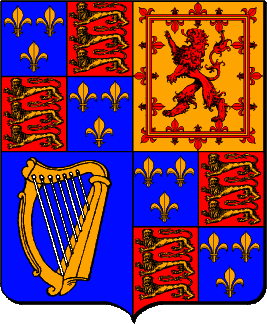
Documents Illustrating
Jacobite History
Over 100 primary source documents which show the intentions of the Jacobites and of their opponents.

A Jacobite Gazetteer
A guide to the homes, churches, and burial places of the exiled Stuarts and of their lineal heirs.

The Jacobite Kings
and Their Heirs
Brief biographies of the Jacobite kings and of their heirs up to the present day.

Genealogical Tree
A graphical representation of the descent of the Jacobite kings and their heirs.

Other Jacobite
Essays and Resources
Articles, genealogies, poems, and prayers.

Royal Family Postcards
Pictures of the Wittelsbachs published between 1900 and 1950.

The Royal Family
throughout the Year
Birthdays and anniversaries of the current Jacobite Royal Family.

Songs of the Jacobites
The Jacobite tradition in music.
|
The Jacobite Heritage

"Jacobite was the name given to that party which, after the Revolution of 1688, continued to support the Stuart dynasty, as representing the principle of divine right. It was derived from Jacobus, the Latin for James. The origin of the party, however, may be traced to the reign of Charles I, for the Jacobites of 1688 were the direct successors of the Cavaliers of 1642, as the Whigs were of the Puritans."1
Jacobites deny the validity of the usurpation of the throne first by the Prince and Princess of Orange (1688/9), next by the Princess Anne of Denmark (1701/2), and finally by the Elector Georg I of Hannover (1714) and his heirs to this day.
For Jacobites, King James II and VII continued to reign until his death in 1701. He was succeeded by his son, James III and VIII, who in turn was succeeded by his sons, Charles III and Henry IX and I. By the death of the latter in 1807 the legitimate male line of the Royal House of Stuart became extinct. The succession to the throne then passed to the senior heir of King Charles I, descended from his youngest daughter Henrietta Anne; this prince was none other than Charles Emanuel IV of Savoy. The succession to the throne has continued until today when it is represented by Duke Francis of Bavaria.
Jacobitism is, however, more than merely a belief that a different person has the best right to the throne. It is also a radically different understanding of the place which the monarch and the monarchy have within society. Jacobites reject the idea that the king has his authority delegated to him by Parliament. Many hold that the king's authority comes directly from Almighty God.
1 Melville Henry Massue, Marquis de Ruvigny et Raineval, The Legitimist Kalendar, 1895 (London: Henry, 1895), 39. For a more extensive explanation of the movement, see Ruvigny's essay, "Legitimism in England".
|